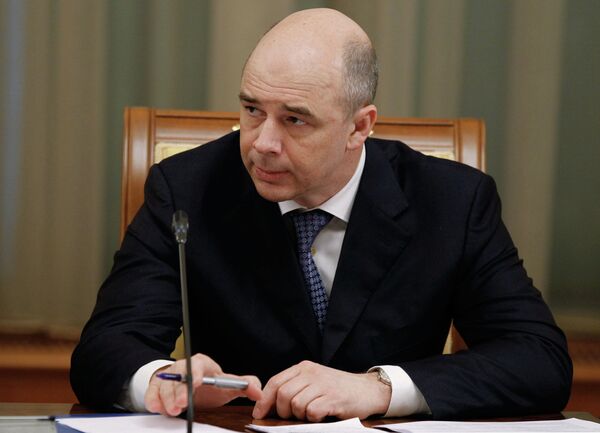Updated 6:41 p.m. Moscow Time
MOSCOW, September 14 (RIA Novosti) - Changing macroeconomic parameters are going to take a heavy toll on the Russian budget, trimming its revenues by a hefty 570 billion rubles, or over $15 billion, in 2015-2017, the nation's finance minister, Anton Siluanov, said Sunday.
"Our macroeconomics has changed. As a result of macroeconomic [changes], we are to fall short next year of 80 billion rubles [$2.1 billion], of 220 billion rubles in 2016, and of 270 billion rubles in 2017," Siluanov told journalists.
The Russian Ministry of Economic Development said it cut the expected GDP growth rates from 2 to 1 percent in 2015, with a 2.3-percent growth predicted in 2016 and a 3-percent rate in 2017.
The ministry's outlooks for inflation stand at 6 percent in 2015, 4.5 percent in 2016 and 4 percent in 2017.
Siluanov also said the Finance Ministry had earlier reviewed the basic figures of the Russian federal budget for the current year. Instead of an earlier planned surplus of 0.4 percent of the GDP the Ministry now hopes to reach a deficit-free level in 2014, while in 2015-2017 it expects a budget deficit of 0.4 to 0.5 percent.
"We believe, that we can reach the deficit-free budget in the current year, give or take the tenths, but for the present time we see an opportunity to finish the budget deficit-free, which is truly very important," Russian Finance Minister Anton Siluanov said.
"According to the budget rule, the budget deficit for the next year will reach 0.5 percent of the GDP, because the base price for oil amounted to $95 per barrel. It [the price] has been defined more precisely and because of that the deficit has increased – it was [estimated at] 0.4 percent and now is 0.5 percent of the GDP," Siluanov added.
The minister also told journalists that the implementation of new projects in infrastructure, support for agriculture and development of Russian regions would cost the Russian federal budget an additional 500 billion rubles (over $13.2 billion) in 2015.

